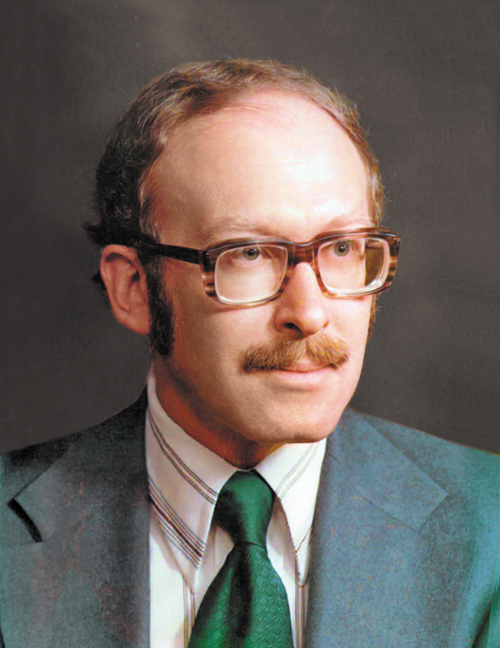Impact Story: Ralph Friedenberg, '63 MD, '69 GME

Member of the Henry & Emma Rogers Society, The Founders Society-NULC (Founders' Level), and Lifetime Giving Society
"My experiences as a student and an endocrinology fellow at Northwestern were positive. There were tough times—I remember leaving the chemistry lab as an undergrad one icy, windy night, and I'd never been so freezing cold before—but I learned a lot and met people that shaped my career. So I feel I owe a good deal to the school.”
Though he grew up in Albuquerque, New Mexico, Ralph Friedenberg, ’63 MD, ’69 GME, had early exposure to Northwestern when his father, Robert Friedenberg, MD, joined the practice of Ralph Mendelson, ’11 MD. One of New Mexico’s first specialists in internal medicine, Dr. Mendelson sang the praises of his alma mater and inspired the younger Dr. Friedenberg to pursue an education in Chicago.
Dr. Friedenberg earned his undergraduate and graduate degrees at Northwestern in 1959 and 1963, respectively, and returned for a fellowship in endocrinology that he finished in 1969. He ultimately returned to Albuquerque but has always been a loyal Northwestern alumnus, serving as the founding president of the NU Club of New Mexico. For decades he has generously supported the medical school through outright gifts to Feinberg’s annual fund and MD Class of 1963 Scholarship. He also recently documented an estate gift to fund endocrinology research and education.
“Dr. Friedenberg’s investment will help us train specialists in endocrinology and new investigators to innovate and lead in our field. I am deeply grateful for his generosity and commitment, which will ultimately improve the health of countless patients living with endocrine and metabolic disease,” says Joseph Bass, MD, PhD, chief of Endocrinology, Diabetes and Molecular Medicine and the Charles F. Kettering Professor of Medicine.
Here, Dr. Friedenberg shares more about his experience at Northwestern and why he gives.
What stands out to you about your medical education at Northwestern?
It’s the people I remember most. Several faculty members influenced me greatly: Ralph Dolkart and Oglesby Paul, who were my attendings at Passavant Hospital, and James Linman, at the VA Research Hospital. Arthur Colwell, a well-known diabetologist, was chair of the Department of Medicine. I also spent a quarter doing research on rheumatic fever with Gene Stollerman. During my fellowship, I worked with Robert Metz in his laboratory and continued to experience clinical medicine and research side by side. Along with my father and Dr. Mendelson, those faculty were models to me— they showed me how a physician should practice medicine.
Why have you chosen to support Northwestern year after year?
Supporting charities is an act of faith to some extent—you don’t always know what’s going on. But I have a good idea of what Northwestern has accomplished, how far the school has come, and where it’s going. Northwestern has changed tremendously since I was there and built a strong reputation. The deans and other leaders at the medical school have done an excellent job and continue attracting successful faculty and students. I know that Northwestern has used the philanthropy it’s been given to really improve its stature and contribute to healthcare.
Why did you focus on endocrinology in your estate gift?
Diabetes and endocrinology, what I specialized in throughout my career, don’t get as much attention as some other areas, perhaps because they’re chronic diseases. But they affect patients deeply and require high quality clinical care. I want to help the Division of Endocrinology conduct research and train fellows in this important area.
For more information about the Division of Endocrinology, Metabolism and Molecular Medicine in the Department of Medicine, contact Kathleen Praznowski at kathleen.praznowski@northwestern.edu.
This story was published in The Founders Society Impact Stories, a publication that highlights leadership donors to various areas of Northwestern University Feinberg School of Medicine. Read the whole issue here.